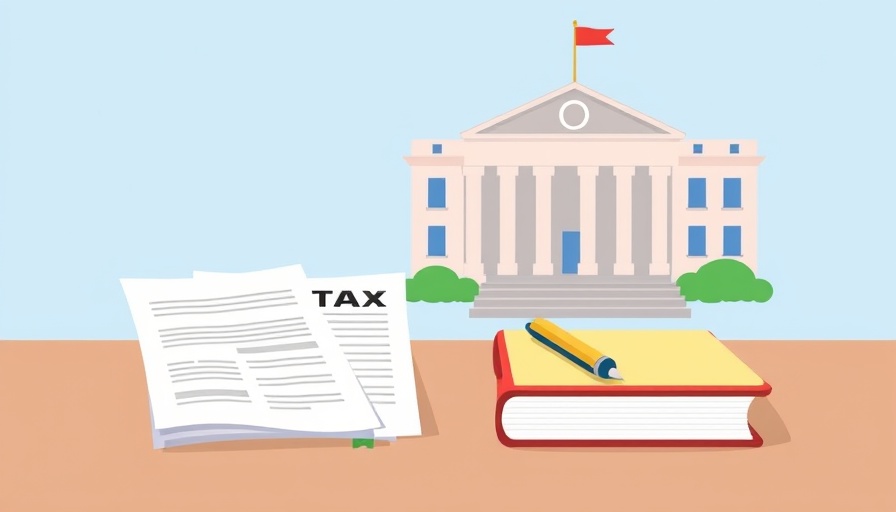
Understanding the One Big Beautiful Bill: Tax Changes Every Small Business Owner Must Know
On July 3, 2025, the One Big Beautiful Bill Act (OBBBA) was enacted, bringing significant changes that small business owners should be keenly aware of. This sweeping tax reform, which was passed alongside the July 4 celebrations, stipulates a range of provisions designed to impact small business operations positively. With changes to tax rates, capital investment deductions, and employee benefit adjustments, the OBBBA is designed to alleviate financial pressures and incentivize growth for small enterprises.
Preserving Tax Rates: What Remains Unchanged?
Even amidst anticipated changes, small business tax rates have largely remained the same under the OBBBA. The structure of tax rates—set at 10%, 12%, 22%, 24%, 32%, 35%, and 37%—will not see any immediate alterations. This stability underlines the importance of fiscal predictability for business owners. In fact, without OBBBA, rates were expected to rise after 2025, which could have posed significant challenges for small businesses and their longevity.
Optimizing Deductions: Your Path to Lower Taxes
One of the standout features of OBBBA is the permanence of the Qualified Business Income (QBI) deduction, which remains at 20% but offers a more liberal phase-out, paving the way for more businesses to qualify. Going forward, there’s a minimum deduction of $400 for qualified active business income, a move praised for its inclusivity.
Exciting Changes with Qualified Small Business Stock (QSBS)
The act also revises provisions related to the exclusion for Qualified Small Business Stock (QSBS). For stock acquired after July 4, 2025, businesses will benefit from enhanced gain exclusions—increasing from the previous $10 million cap to an outstanding $15 million. This aids in alleviating financial burdens for small enterprises and encourages longer-term investment holding.
Boosting Capital Investments: Major Deductions on Equipment and R&D
The tax overhaul also magnifies deductions related to capital investments. The bonus depreciation is now permanently set at 100% for eligible property acquired and placed in service on or after January 19, 2025, fostering an environment conducive to growth through investment. Additionally, first-year expensing has doubled to $2.5 million, allowing businesses to take immediate advantages of capital purchases, crucial for expanding operations.
But that’s not all. The act enables full expensing for R&D costs, moving away from amortized deductions over five years to immediate deductions. This is a remarkable shift that positions innovation at the forefront of small business strategy, recognizing R&D's pivotal role in driving future growth.
Employee Benefits and Payroll Tax Adjustments
Understanding the changes to employee benefits is equally crucial. One notable provision is the elimination of tax on overtime pay; however, this will require employers to adapt to new reporting requirements regarding employees' total earnings from overtime. Such adjustments necessitate thorough record-keeping and clear communication with employees to ensure compliance with new regulations.
Preparing for the Future: Practical Steps for Business Owners
Navigating the landscape post-OBBBA requires strategic planning. Small business owners are advised to conduct thorough assessments of their tax liabilities, considering adjustments that might benefit their bottom lines in the upcoming tax periods. From maximizing deductions to understanding employee compensation better, preparing in advance can safeguard against unforeseen tax burdens.
This comprehensive checklist serves merely as a starting point. In the coming months, further articles will delve into specifics, empowering business owners with strategic insights for leveraging OBBBA's provisions effectively.
 Add Row
Add Row  Add
Add 




Write A Comment